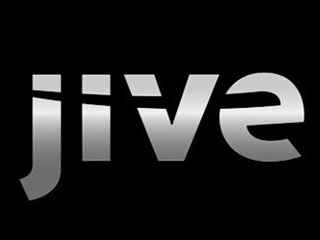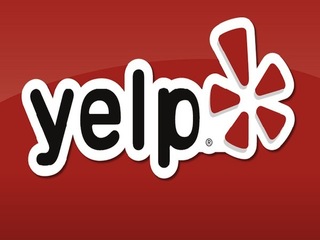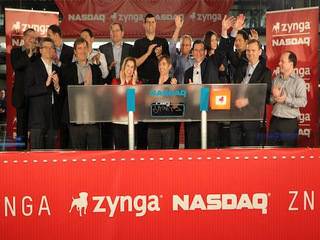The FDA outlines draft guidance on AI for medical devices
The agency also published draft guidance on the use of AI in drug development
Read more...
By the end of the week, the review site for all those testing in search of a new service or restaurant, Yelp, will be a publicly traded company.
Yelp has more than 22 million reviews of local businesses and collected around $59 million in net sales during the first 9 months on 2011, compared with $47 million in revenue during 2010 and $26 million in 2009.
Clearly, Yelp has proven that it has a business model that can sustain itself as its revenue grows and its losses have lowered substainally to only $7.6 million in the first nine months of the year -- a better fairing than most of the companies that debuted on the market so far this year.
As market analysts and investors pause to see how the monosyllabic company fairs when it puts 7.15 million shares up for sale on the New York Stock Exchange, many are looking over recent Internet tech companies that are exiting their honeymoon period -- and many are proving that this is still a fickle market that isn't boosting stock prices with the rocket propulsion seen in years past, but most are still seeing some positive trading that holds promise.

Ticker: ANGI
IPO debut: November 17.
IPO price: $13.
Now trading at: $16.00.
Revenue over the last year: $31 million.
The company rating site, Angie's List, is the oldest tech company that made its IPO in the past year. This company most closely resembles Yelp, since it is a service review site, but there are still many differences between the two companies. And Angie's List has fair reasonably well over the last three and a half months, despite its disclosure of net losses of more than $50 million last year.
The 16 year-old company, made its debut before the holiday scramble and was priced at $13 a share, but has not shown any substantial growth in the public markets.
On the first day of trading, the rating site was up nearly 40% from the original $13 price tag and dipped as low as $15.02, before finally settling at $16.26.
The stock looks to close out the year 10-15% above its debut, as long as the markets don't turn on it in the last three weeks of trading.
Considering Angie's List is far less patronized and is not the household name that Yelp is, the company trading 23% above the IPO price could be promising for Yelp.

Ticker: GRPN
IPO debut: November 4.
IPO price: $20.
Now trading at: $19.72.
Revenue over the last year: $1.3 billion.
Known as the largest and first to see significant following in the group-deal buying industry, Groupon made serious waves as it went public last fall. There was a great deal of debate over the valuation of the discount-focused company as it continued to get slammed in the press for hurting small businesses with overwhelming demand for low-cost services.
And as the IPO approached, the company struggled to show its strength of competitors in the market, including BuyWithMe, LivingSocial, Plum District, Home Run, and dozens of social and search-engine created deal services.
When the company finally disclosed that it only brought in $688 million for the first half of 2011, almost half of the $1.5 billion it claimed previously, investors balked at the company and questioned if it could compete at the $20 stock price it was opening with.
Groupon saw the initial 30% jump on the stock's first day of trading, but in following days dropped nearly 27%.
While the shares are still fairly new on the scene, the company is struggling to stay close to the opening price and show stability in the market.
Currently the stock is trading below, but very close to its debut offering.

Ticker: Z
IPO debut: July 20.
IPO price: $20.
Now trading at: $31.92.
Revenue for first 9 months of 2011: $46 million.
Zillow is one of several real estate search sites that has seen great increases in traffic and finally the company filed for IPO in April. The company showed that it saw a significant 74% jump in revenue in 2010 to $31 million.
The revenue alone showed promise for the real estate-centric company but, like many tech startups, Zillion was not profitable and lost $7 million in 2010.
When the company opened its trading on July 20, the stock popped 120% and closed out the day nearly 80% above the $20 debut price.
Zillow soon fell victim to the spiky real estate demand and environment and saw inconsistent movement on the market. Now that the company 59% above its IPO price, this company shows that it has real demand on the public exchange.

Ticker: P
IPO debut: June 15.
IPO price: $16.
Now trading at: $13.06.
Revenue for the first 9 months of 2011: $168 million.
Even though the smart streaming music service prepared its investors that the company would not be profitable until well into 2012, the demand for shares in Pandora pumped the initial soft offer of $7 per share up to the final debut price of $16 per share. It appears that it would have faired better for the company if the soft offer of $7 was followed through on since the company took a nose-dive in the fall.
While Pandora saw the expected opening pop up to $26 in early trading, the stock closed remarkably close to the opening at $17.42.
Pandora continued to see blows to its stock through the year as public disclosures on quarterly forecasts continued to show low expectations and in November the stock saw a 33% drop.
The company stock is now trading nearly 40% below its opening price and has proved to be the biggest tech loser of the last 16 months. Thankfully for Yelp, there is little concern that it is fated to follow in Pandora's footsteps.

Ticker: LNKD
IPO debut: May 19.
IPO price: $45.
Now trading at: $86.87.
Revenue for first 9 months of 2011: $354 million.
The professional networking site, LinkedIn, saw one of the greatest public debuts of the year when it opened at $45 and immediately shot up to over $120, ending the first day of trading at $94.25.
LinkedIn also has shown that it could be profitable as it entered its public trading and disclosed that it made $5 million in profit for the first nine months of the year.
The company also continued to unveil new revenue models throughout the remainder of the year (including the plans for a Talent Pipeline service for recruiters to pay for assistance in tracking possible candidates.)
Since the initial spike was extremely promising to investors, the company is experiencing a now rare boom that has nearly doubled the stock price -- Yelp could only wish to see such results with its IPO eight months down the line.
And . . . while Jive Software and Zynga are each only 11 weeks in the post-IPO, it might be helpful to see just what the middle ride could have in store for Yelp.

Ticker: JIVE
IPO debut: December 13, 2011.
IPO price: $12.
Now trading at: $21.81.
Revenue for first 9 months of 2011: $54.8 million.
Jive Software, the social enterprise and collaboration software company, made its debut in mid-December, just before Zynga, and raised $160.8 million on the NASDAQ.
Jive opened at $16.50, a 27% jump from its IPO price of $12, which was also above an initially anticipated $8-$10 range.
Volume in early trading was 13.4 million shares (significantly more than the expected 11.7 million). At the current price, Jive is trading at a market cap of $708 million.
The stock only saw moderate action, but has kept strong on its pattern and is now trading near twice the IPO price. While the company has a fair amount of honeymoon left before it becomes a crotchety old stock exchange vet, it shows that the market could be perking up for Internet companies this year.

Ticker: ZNGA
IPO debut: December 16, 2011.
IPO price: $10.
Now trading at: $13.17.
Revenue for first 9 months of 2011: $828.9 million.
The buzz has long been weary when referencing Zynga. The company is too young, too unoriginal and too dependent on Facebook. And while all of those claims are still accurate, the recent filing for Facebook to go public shed a really bright light on just how important Zynga is to Facebook -- and that puts the strength back on the side of the San Francisco gaming company.
It was a rocky road for Zynga, however. The stock broke through its IPO price of $10 a share and ended its debut day at $9.50, down 50 cents.
A 10% pop is a modest one compared to past Internet IPOs in recent history. Groupon opened on the exchange a substantial 30% above its initial price and LinkedIn opened and almost double the $45 stock price on its first day. Even the now troubled Pandora saw a 31% pop for its stock upon it debut.
While that lackluster opening set the stage for even more ho-hum trading, the Facebook filing perked up the stock to show 30% growth from the IPO price and could continue to bring the company some modest and stable desire from investors.
The agency also published draft guidance on the use of AI in drug development
Read more...The biggest focus areas for AI investing are healthcare and biotech
Read more...It will complete and submit forms, and integrate with state benefit systems
Read more...Startup/Business
Joined Vator on
Yelp is the fun and easy way to find, review and talk about what's great (and not so great) in your world. You already know that asking friends is the best way to find restaurants, dentists, hairstylists, and anything local. Yelp makes it fast and easy by collecting and organizing your friends' recommendations in one convenient place.
...the ultimate city guide that taps into the community's voice and reveals honest and current insights on local businesses and services on everything from martinis to mechanics.
...just real people, writing real reviews, and that's the real deal.
...a fun and engaging place for passionate and opinionated influencers to share the experiences they've had with local businesses and services.
...the definitive local guide in the San Francisco Bay Area and a force to be reckoned with in Chicago, New York, Boston, Los Angeles and Seattle. But really, we're everywhere. From Austin to Madison and everywhere in between, reviews are coming in from all over the country!
...word of mouth marketing - amplified. Savvy local marketers now have a great channel to effectively target local consumers.
Since July 2004, co-founders Jeremy Stoppelman (CEO) and Russel Simmons (CTO) and their Yelp crew have been striving to make life better for people who love to patronize great local businesses. Discovering accurate information on local establishments has never been this entertaining. Writing reviews has never been this fun, easy and addictive!
Startup/Business
Joined Vator on
Jive Software makes enterprise social software that reunites employees with each other and connects them with their customers and partners. Jive Software is the market leader in social productivity and community software with more than 2,000 customers and over 15% of the Fortune 500. Jive was founded in 2001 and is located in downtown Portland, Oregon.
Startup/Business
Joined Vator on
Zynga is the largest social gaming company with 8.5 million daily users and 45 million monthly users. Zynga’s games are available on Facebook, MySpace, Bebo, Hi5, Friendster, Yahoo! and the iPhone, and include Texas Hold’Em Poker, Mafia Wars, YoVille, Vampires, Street Racing, Scramble and Word Twist. The company is funded by Kleiner Perkins Caufield & Byers, IVP, Union Square Ventures, Foundry Group, Avalon Ventures, Pilot Group, Reid Hoffman and Peter Thiel. Zynga is headquartered at the Chip Factory in San Francisco. For more information, please visit www.zynga.com.

Joined Vator on






